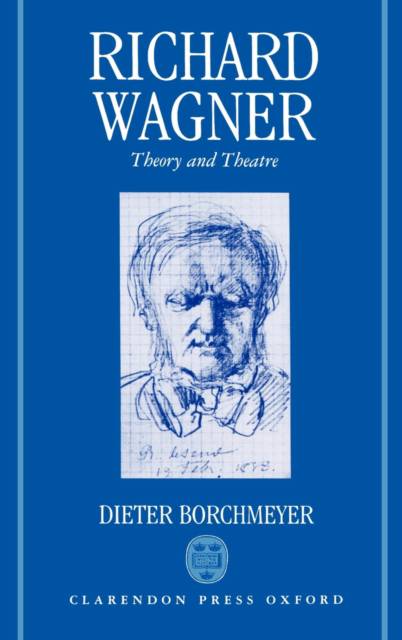
- Afhalen na 1 uur in een winkel met voorraad
- Gratis thuislevering in België vanaf € 30
- Ruim aanbod met 7 miljoen producten
- Afhalen na 1 uur in een winkel met voorraad
- Gratis thuislevering in België vanaf € 30
- Ruim aanbod met 7 miljoen producten
Zoeken
Omschrijving
Richard Wagner has come to be seen as the quintessential artist of the nineteenth century. Borchmeyer here provides the first systematic and comprehensive account of Wagner's aesthetic theory, examining his hitherto neglected prose writings and his ideas on music drama from the various standpoints of literature, the linking of ideas, and the sociology of art. The preeminent importance for Wagner of classical Greek art and mythology emerges with particular clarity, while his links with the great figures and forms of world theatre-- Shakespeare, the commedia dell'arte, the popular theatre, and the puppet theatre--are traced in detail. The influence on Wagner of the historical and social novel is also discussed. The author provides the first comprehensive analysis of Cosima Wagner's Diaries, and throws unexpected sidelights on Wagner's relationship with Nietzsche, in particular his important contribution to Nietzsche's The Birth of Tragedy.
Specificaties
Betrokkenen
- Auteur(s):
- Vertaler(s):
- Uitgeverij:
Inhoud
- Aantal bladzijden:
- 444
- Taal:
- Engels
Eigenschappen
- Productcode (EAN):
- 9780193153226
- Verschijningsdatum:
- 28/11/1991
- Uitvoering:
- Hardcover
- Formaat:
- Genaaid
- Afmetingen:
- 152 mm x 229 mm
- Gewicht:
- 816 g

Alleen bij Standaard Boekhandel
+ 934 punten op je klantenkaart van Standaard Boekhandel
Beoordelingen
We publiceren alleen reviews die voldoen aan de voorwaarden voor reviews. Bekijk onze voorwaarden voor reviews.








